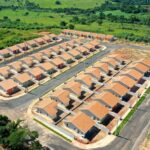Botswana has been identified as the country with the second-highest cost of living in Africa, according to a recent report published by Business Insider Africa. The study, compiled by the European database company Numbeo, evaluates the affordability of essential goods and services, including housing, transportation, food, healthcare, and education, to determine the overall cost of living index.
Ranking Just Below Ethiopia
Ethiopia holds the top position with the highest cost of living on the continent, while Botswana follows in second place. The remaining countries in the top ten include Mozambique, Ivory Coast, Somalia, Cameroon, Mauritius, Zimbabwe, Rwanda, and Zambia in descending order.
On a global scale, Botswana is ranked 65th in terms of cost of living.
Limited Disposable Income
The report highlights the challenges faced by families in Botswana due to high living expenses. It states that limited disposable income restricts families from saving, investing, or spending on non-essential items, thereby impacting their financial stability and quality of life.
Rising Operational Costs
Increased living costs have also led to rising business expenses. The report explains that companies, especially small and medium-sized enterprises (SMEs), face higher operational costs as utility bills, rent, and payroll expenses climb. This puts significant pressure on SMEs, which are vital to the African economy.
Inflation and Investor Concerns
A high-cost environment often drives up wage expectations, which in turn increases the risk of inflation. The report cautions that elevated living expenses could deter potential investors if they believe that profitability would be compromised.
Additionally, the loss of skilled labor is a growing concern, as high costs may push workers to seek better opportunities in countries with lower living expenses.
Botswana’s economic landscape reflects the broader implications of a high cost of living, affecting families, businesses, and the overall investment climate. Addressing these challenges is crucial to sustaining growth and ensuring a balanced, prosperous future for all citizens.










